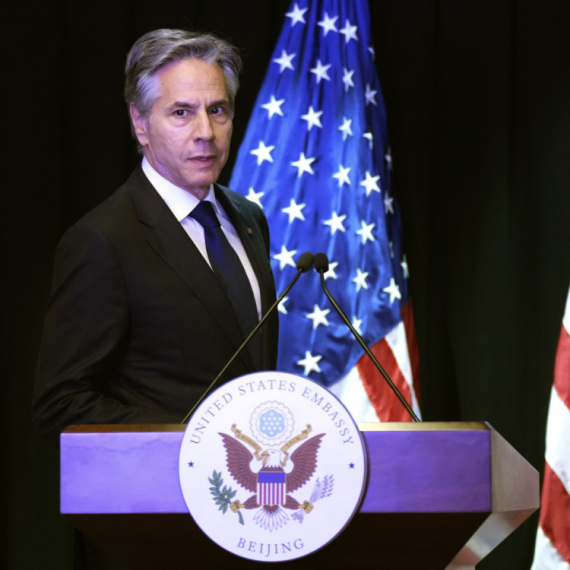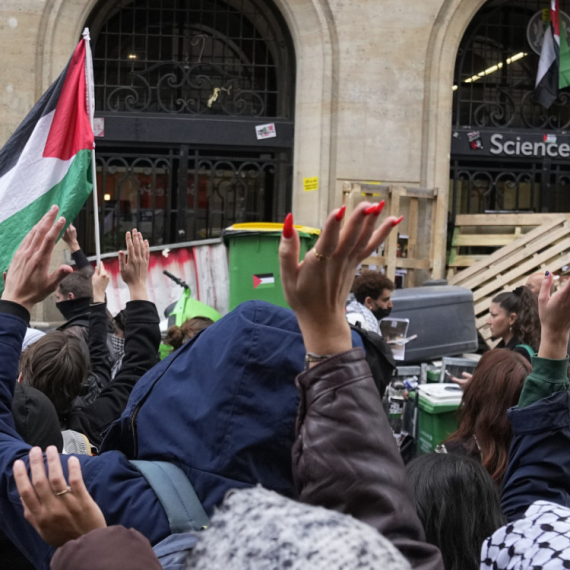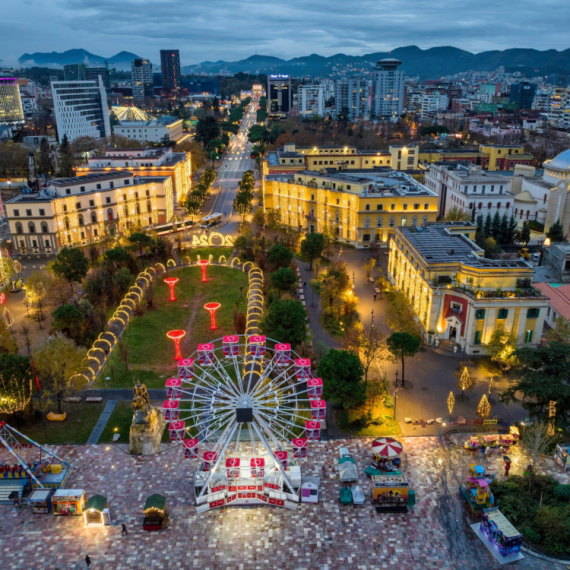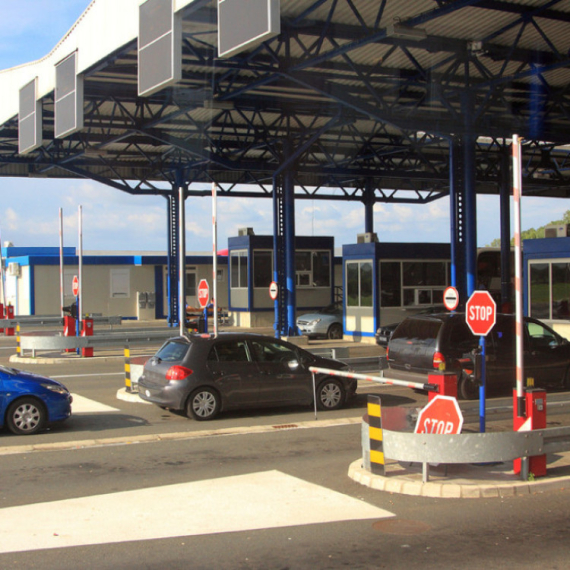100 killed in new Nigeria pipeline inferno
An oil pipeline explosion killed about 100 people on Thursday near a primary school in a suburb north of Lagos, the Red Cross said.
Friday, 16.05.2008.
11:19

An oil pipeline explosion killed about 100 people on Thursday near a primary school in a suburb north of Lagos, the Red Cross said. An earth-moving excavator at a road construction site accidentally burst the pipeline causing the explosion and an inferno which engulfed adults and children stood nearby, Red Cross official Sule Mekudi told AFP from the site of the disaster. 100 killed in new Nigeria pipeline inferno The blast erupted near a primary school in the suburban town of Ijegun, and the area was littered with shoes and bags belonging to pupils, a journalist at the scene told AFP. Local people threw sand and water at the flames in a bid to help firefighters extinguish the blaze, witnesses said. "About 100 people were confirmed dead in the explosion. We have also evacuated about 20 others to the Ikeja general hospital," Mekudi told AFP. Most of the injured had suffered serious burns, he added. Pipeline fires are commonplace in Nigeria, Africa's biggest oil producer, in part because of poor pipeline maintenance but also because of thieves who vandalise pipelines to siphon off petrol to sell on the black market. On December 25, around 40 people died in a fire at a pipeline in a creek in Lagos after it was vandalised by looters. Exactly one year earlier, more than 200 people died scooping fuel from a vandalised pipeline in another Lagos district. More than 1,000 villagers burnt to death in 1998 in Jesse, near the southern Delta state oil city of Warri, following the vandalisation of a fuel pipeline. Victims were suspected of scooping petrol to sell on the black market. State-run oil giant Nigerian National Petroleum Corporation (NNPC) has campaigned against pipeline vandalisation. It says between 400 and 500 acts of vandalism occur every year on its pipelines. Nigeria derives more than 95 percent of its foreign exchange earnings from oil. Rescuers began leaving the scene of the latest disaster as darkness set in, said Abdulsalam Mohammed, a spokesman for Nigeria's national emergency agency. "The fire has drastically reduced. We shall continue work tomorrow (Friday). We will also discuss (how) to improve on our level of preparedness against future occurrence," he said. Firefighters from the Nigerian Emergency Management Agency (NEMA), the fire service, construction firm Julius Berger and the NNPC fought the blaze, he said. Lagos police spokesman Frank Mba said the rescue work continued and it was too early to provide casualty figures. Lagos MP, Adeola Olamilekan, who was at the scene of the disaster, thanked firefighters for their efforts to put out the fire.
100 killed in new Nigeria pipeline inferno
The blast erupted near a primary school in the suburban town of Ijegun, and the area was littered with shoes and bags belonging to pupils, a journalist at the scene told AFP.Local people threw sand and water at the flames in a bid to help firefighters extinguish the blaze, witnesses said.
"About 100 people were confirmed dead in the explosion. We have also evacuated about 20 others to the Ikeja general hospital," Mekudi told AFP. Most of the injured had suffered serious burns, he added.
Pipeline fires are commonplace in Nigeria, Africa's biggest oil producer, in part because of poor pipeline maintenance but also because of thieves who vandalise pipelines to siphon off petrol to sell on the black market.
On December 25, around 40 people died in a fire at a pipeline in a creek in Lagos after it was vandalised by looters. Exactly one year earlier, more than 200 people died scooping fuel from a vandalised pipeline in another Lagos district.
More than 1,000 villagers burnt to death in 1998 in Jesse, near the southern Delta state oil city of Warri, following the vandalisation of a fuel pipeline. Victims were suspected of scooping petrol to sell on the black market.
State-run oil giant Nigerian National Petroleum Corporation (NNPC) has campaigned against pipeline vandalisation. It says between 400 and 500 acts of vandalism occur every year on its pipelines.
Nigeria derives more than 95 percent of its foreign exchange earnings from oil.
Rescuers began leaving the scene of the latest disaster as darkness set in, said Abdulsalam Mohammed, a spokesman for Nigeria's national emergency agency.
"The fire has drastically reduced. We shall continue work tomorrow (Friday). We will also discuss (how) to improve on our level of preparedness against future occurrence," he said.
Firefighters from the Nigerian Emergency Management Agency (NEMA), the fire service, construction firm Julius Berger and the NNPC fought the blaze, he said.
Lagos police spokesman Frank Mba said the rescue work continued and it was too early to provide casualty figures.
Lagos MP, Adeola Olamilekan, who was at the scene of the disaster, thanked firefighters for their efforts to put out the fire.
























































Komentari 0